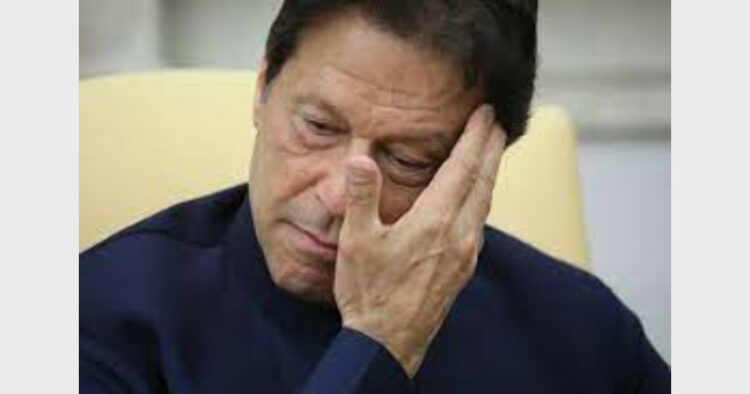New Delhi: In 2016, the then Defence Minister Manohar Parrikar made a candid observation when he said- "As a patient remains unconscious after surgery, in the same way ….. Pakistan is in a coma, and it is unable to understand what has happened. Just like a patient who has been given anesthesia and is senseless. And even after surgery is performed he is unable to realise that it has already been performed."
These words have turned prophetic, especially in the context of Pakistan, of 2021 vis-à-vis the post-Taliban takeover of Afghanistan. Imran Khan's hyped 'Kamyab Pakistan' has little meaning on the ground. The moments of momentary rejoice after the Taliban' win' seemed to be heading for bringing in a worse set of challenges.
In October 2021, it faces three rounds of litmus tests.
Let's take it one by one.
Even as Pak's beleaguered Prime Minister, Imran Khan, is still awaiting just a telecall from the White House (read President Joe Biden), diplomats in Islamabad have a tough job at hand in dealing with the visit of US Deputy Secretary of State Wendy R Sherman.
She is slated for a two-day Pakistan tour from October 7 after her visits to New Delhi and Mumbai.
There has to be some concerted effort in meetings with her to dispel the global notion that authorities in Islamabad have always played double games when it came to the business of war against terror. Instead, Pakistan has used 'terror' as a ploy either to inflict injuries on India or make money from the western powers and often did end up doing both things.
Pakistan's position is rather weak today as Joe Biden has so far avoided making a telecall to Imran Khan, who avoided a trip to the US in September for UNGA and instead made his ritualistic speech online. It's time now, as they put it even on other fronts.
Pakistan is perhaps apprehensive of US sanctions too.
Pakistan will also have to resume its programme with the International Monetary Fund (IMF) as the $1 billion Eurobond matures on October 14. The IMF meetings are likely to be held from October 12 to 17th. The Pak government may have to float another bond to handle repayment issues. The IMF has said Pakistan needs to start unwinding the stimulus measures.
Between October 17 and October 22, the meetings of anti-money laundering watchdog the Financial Action Task Force (FATF) are scheduled, and Islamabad's priorities will be to come out of the so-called 'grey list'. But this is easier said than done. Pakistan is now under the lens of the terror-funding watchdog FATF largely due to its policies and because New Delhi is sustaining the pressure. On June 25, Pakistan was retained by the FATF on the list of countries under "increased monitoring" as Islamabad failed to prosecute top leadership of the US Security Council designated terror groups.
Pakistan was also handed over a fresh list of 'six tasks' related to money laundering and terror funding.
Since 2018, New Delhi has pointed out to global players that despite making commitments in international fora, the Pakistan establishment has given "freedom and impunity" with which the designated terrorists like Hafiz Saed and entities like Jamaat-Ud-Dawaa, Lashkar-e-Tayabba, Jaish-e-Mohammed continues to operate in Pakistan.
Even some sections of Pakistanis understand the gravity of the situation their country is in.
"The more Pakistan is seen advocating for Afghanistan's difficulties, the more our destinies will be joined in the eyes of those we are trying to persuade. This outcome must be averted," wrote Pakistani journalist Khurram Husain in 'Dawn'.
Unlike his Prime Minister Imran Khan, who was once called 'Taliban Khan', Husain also argues that the 'collapse of centralised authority' in Afghanistan could result in grave risks for Pakistan.














Comments